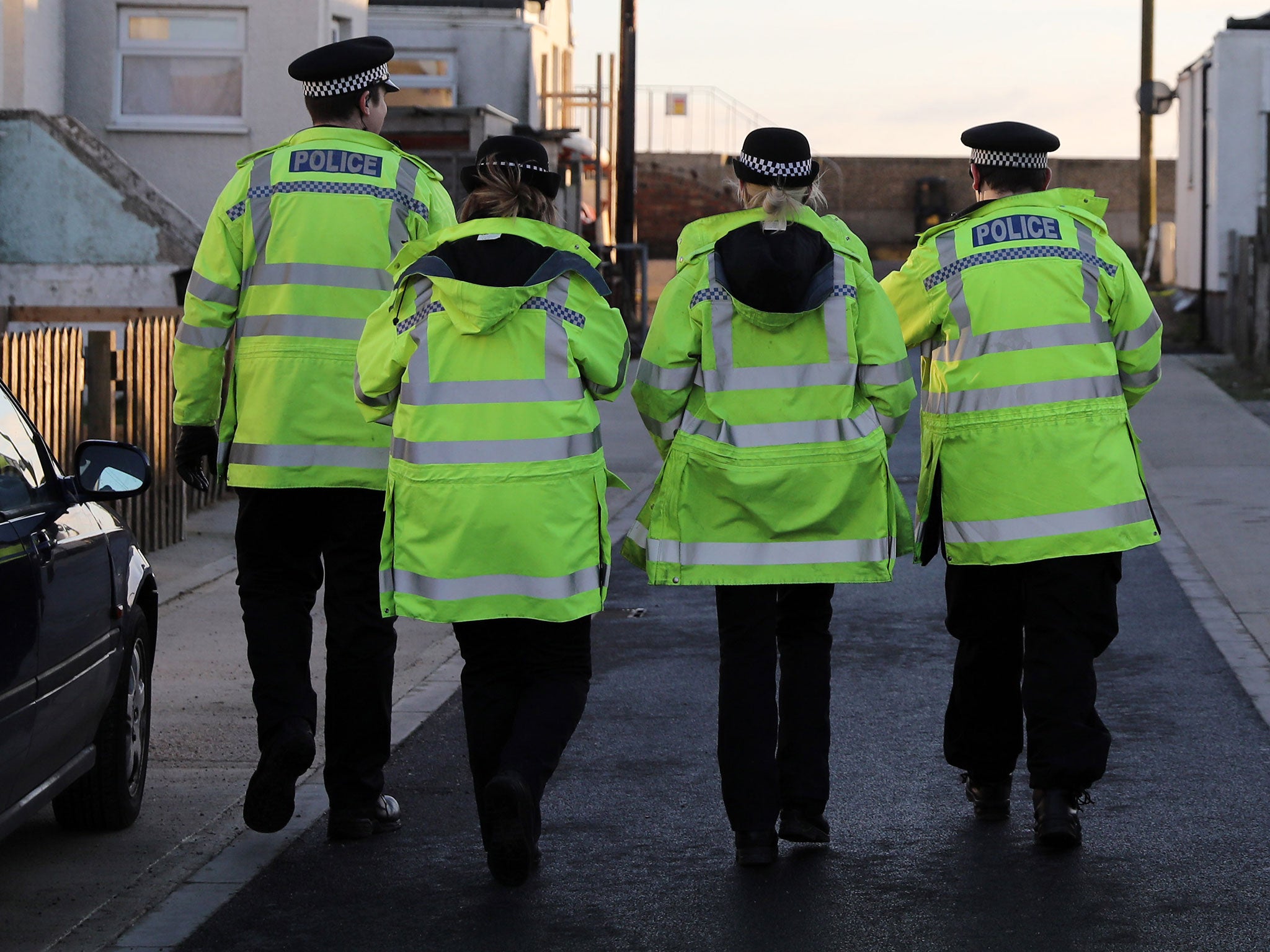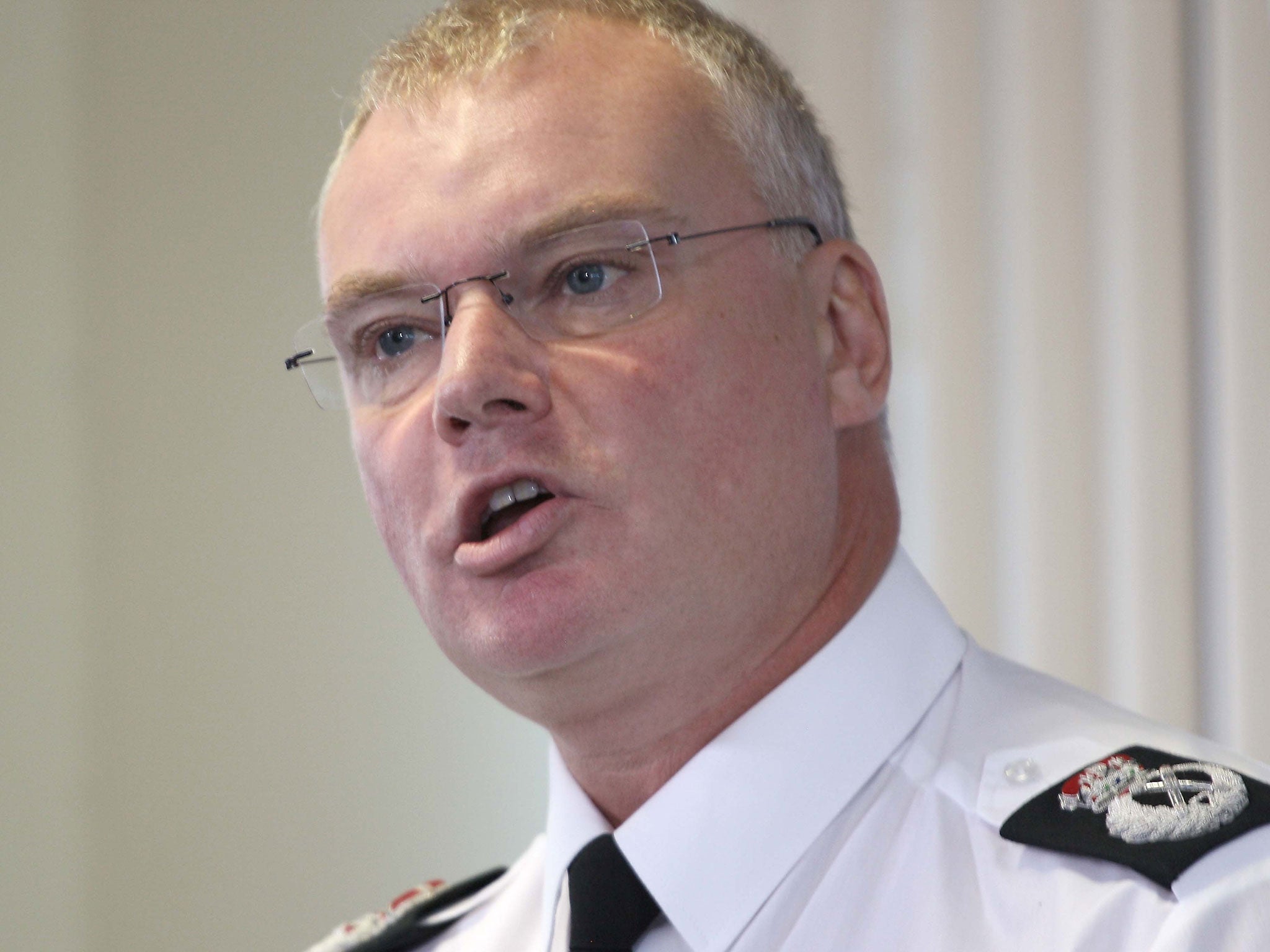First police force found to be ‘failing’ in all areas as watchdog finds performance worsening across country
Inspectors say forces across the country are ‘finding it harder to solve crime’ after budget cuts and rising demand

Your support helps us to tell the story
From reproductive rights to climate change to Big Tech, The Independent is on the ground when the story is developing. Whether it's investigating the financials of Elon Musk's pro-Trump PAC or producing our latest documentary, 'The A Word', which shines a light on the American women fighting for reproductive rights, we know how important it is to parse out the facts from the messaging.
At such a critical moment in US history, we need reporters on the ground. Your donation allows us to keep sending journalists to speak to both sides of the story.
The Independent is trusted by Americans across the entire political spectrum. And unlike many other quality news outlets, we choose not to lock Americans out of our reporting and analysis with paywalls. We believe quality journalism should be available to everyone, paid for by those who can afford it.
Your support makes all the difference.A scandal-hit police force has become the first to be branded “failing” in all areas after inspectors found it was not preventing crime or protecting vulnerable people.
HM Inspectorate of Constabulary (HMICFRS) issued a damning report rating Cleveland Police “inadequate” and raising “serious concerns” about public safety and ethics.
It has been placed into a national oversight process where officials will monitor planned improvements, and make a referral to the home secretary for potential sanctions if targets are not met.
Inspector Phil Gormley said he was “extremely concerned about the performance of Cleveland Police in keeping people safe and reducing crime”.
“The way that Cleveland Police treats the public and its workforce is inadequate,” he added. “I am very concerned at the lack of ethical behaviour in the force – senior leaders should be acting as positive role models and many are not.”
HMICFRS said it was the first time a police force had ever been graded as “inadequate” in all areas it inspects – effectiveness, efficiency and legitimacy.
Its report detailed numerous failings, saying Cleveland Police was not catching enough criminals, is not making the best use of its resources and has created new risks by changing its own processes.
“The force doesn’t have an adequate understanding of what the public expects of its police service,” inspectors said, after residents in Hartlepool started their own neighbourhood crime patrols last year.
Cleveland Police, which covers areas including Middlesbrough and Hartlepool, has been plagued by a series of scandals and seen six chief constables in as many years.
Sean Price was sacked for gross misconduct in 2012 and Mike Veale resigned in January amid a probe into “serious” misconduct allegations, while the officers have also been investigated for unlawfully monitoring journalists’ phones and racism.
Current chief constable Richard Lewis, who took up his new post in April, has rebuffed suggestions the force should merge with its much larger neighbour forces of North Yorkshire or Durham.
“Improvements have already been made and I take full responsibility for driving through the changes that are so obviously needed,” he said.
The Labour police and crime commissioner for Cleveland, Barry Coppinger, admitted the force had “let people down in Cleveland”.
He said he would be monitoring the implementation of an improvement plan but said the force had suffered the impact of government budget cuts.
“In recent years, the force has not only had to had to deal with reduced resources, they have also had to deal with increased crime and antisocial behaviour, the roots of which lie in cuts to youth workers, adult and social care, community wardens, health and other public services,” Mr Coppinger said.
HMIC said the performance of police forces across the country had been deteriorating after years of Conservative budget cuts that saw the loss of more than 21,000 officers.
Inspections of 14 of the 43 forces in England and Wales – spanning different regions, and urban and rural areas – showed a “system under pressure”, a report said.
“The public are already experiencing some of the problems this creates,” it added. ”There are delays in attending their calls and it can take too long to carry out investigations.
“Officers and staff sometimes carry out tasks without the right training or enough supervision.”
The report was released after Ministry of Justice statistics showed the number of court trials at a record low, following a drop in prosecutions that officials blame on falling case referrals from police.
HM Inspector of Constabulary Matt Parr said police were struggling to deal with rising demand from complex cases like historical sex abuse, cybercrime and fraud.
“The pressure is getting worse and we can see how it’s affecting the workforce,” he told a press conference. “There is more stress, longer hours and unable to give the public the service they need.”
Boris Johnson has vowed to recruit 20,000 extra police officers over the next three years, but one of the country’s most senior officers has said up to half a million applicants may be needed to meet the target.
Mr Parr said an increase in officer numbers was “clearly good news but it would be naive to think that just adding 20,000 people to the payroll will solve all the problems policing is facing”.
He said that the speed of recruitment demanded by the government would itself create pressure, including strain on training, vetting departments and infrastructure.

Mr Gormley said the modern police service also needs improved technology and specialists in cybercrime and vulnerability, and increased numbers of staff as well as officers.
The Police Federation, which represents rank-and-file officers, said working conditions and pensions must be improved to stop experienced officers leaving.
“It’s no good putting the 20,000 in the bottom if you’re not going to retain them long term,” performance lead Phill Matthews told The Independent.
“Numbers will help on the frontline but there are a lot of other factors at play … we have been systematically cut over eight years so it will take a long time to turn that decline around.”
The Home Office said 6,000 officers would be in place by March 2021, with £750m given for the first year of the recruitment drive.
The department is monitoring Cleveland Police, which it said received £132.7m in funding in 2019-20, an increase of £7.3m on the previous year.
Kit Malthouse, the policing minister, said: “Transparency and accountability are vital for public trust in policing and we welcome the report from Her Majesty’s inspectorate on the problems within Cleveland Police.
“The new chief constable is in the process of reforming the force and has made an immediate start on a recovery plan.
“We welcome his swift action to address these failings and will be monitoring the position closely.”
Join our commenting forum
Join thought-provoking conversations, follow other Independent readers and see their replies
Comments